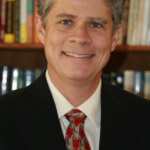
High-Functioning Autism in Adults: Practical Interventions for Challenging Behaviors
High-Functioning Autism in Adults: Practical Interventions for Challenging Behaviors
Information
Date & Time
-
-
Learning Objectives
Participants will be able to:
-
Name at least two significant activities of daily living in which adults with ASD are impaired.
-
Identify two medical diagnoses that are often comorbid to those with ASD.
-
Identify three mental health diagnoses that are often comorbid to those with ASD.
-
Identify at least one false belief providers have about those with ASD and discuss why they can be hurtful.
-
Describe three ways providers can improve their communication and work environments to aid those with ASD receive the help they need.
Educational Goal
The educational goal of this workshop is for providers to increase knowledge about adults with Autism Spectrum Disorder and learn best-practices for working with this population.
Description
In honor of Autism Awareness Month, this 2-hour workshop for medical and mental health professionals addresses best practices when working with adults with Autism Spectrum Disorder. When the term Autism was coined in 1943 to describe those with severe social-emotional, communication, and relationship impairments, it was thought to only afflict non-verbal children with low intellectual functioning. Over the last 70 years, we have learned that, in addition to those described above, Autism can afflict those at both ends of the intellectual spectrum, those with high-level language skills and adults.
This workshop will describe how a high-functioning adult with Autism Spectrum Disorder may present in medical or mental health environments, common medical and mental health comorbidities, best practices for communication given potential language difficulties, and how to make mental and medical healthcare environments most accessible given potential sensory sensitivities. This presentation will also discuss the neurological and genetic differences typically found in adults with Autism Spectrum Disorder and the other bodily systems involved with the disorder. Finally, special topics that providers should address will be discussed.
Target Audience
- Addiction Professional
- Counselor
- Marriage & Family Therapist
- Nurse
- Physician
- Psychologist
- Social Worker
Presenters

Dr. Blake is a recognized national authority on Specific Learning Disorder, AD/HD and Autism Spectrum Disorder (ASD) in children, adolescents, and adults. He has specialized for over 30 years in Specific Learning Disorder, AD/HD, and ASD and lives and works as a licensed psychologist in Tucson, Arizona. Interest in these areas was spurred by his own struggles with trying to overcome Dyslexia with impairment in phonological processing, fluency, spelling, and comprehension, as well as a severe sensorineural hearing loss which were all initially diagnosed at the age of 26 during his first year of a doctoral program. At that time, early 1980’s, little was known about adults with Specific Learning Disorder. As Dr. Blake struggled to learn about his own Specific Learning Disorder, he decided to make his life’s work the diagnosis and treatment of adults with Specific Learning Disorder, AD/HD, and autism spectrum disorder.
When Dr. Blake began his professional career, he was one of a handful of practitioners in the country with such a focus. Now he travels the country sharing his personal story and what he has learned about Specific Learning Disorder, AD/HD and Autism Spectrum Disorder with other professionals who work with these populations, individuals with these disorders, and their loved ones. Dr. Blake, an avid competitive cyclist, lives with his wife, a retired psychologist, and their two dogs in Tucson.
Financially Sponsored By
- Aetna Better Health of Louisiana